
This timeline presents key scholarship since 1990, sorted first by year and then by topic. Most scholarship associated with each topic, including books, publications, articles, modules, etc., is available in its most recent edition as linked content so that you may browse the documents themselves. In the case of curricula in current use, the link offers an e-flip version for viewing. Seminal publications NOT produced or published by Pacific Crest appear in yellow text.
1990
- Activity Books
-
Starting in 1990, Pacific Crest began helping faculty and publishing companies produce supporting resources for textbooks. These resources were supplemental activity books; the first was Introduction to Problem Solving using PC:SOLVE.
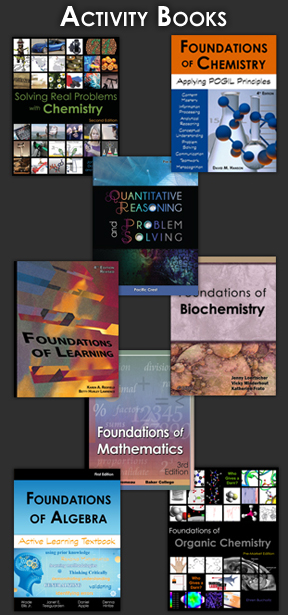
1990 Introduction to Problem Solving using PC:SOLVE
1990 Calculus with Analytical Geometry (5th ed.)
1990 Problem Solving Across the Curriculum (Conference Program Guide)
1990 PC:SOLVE Calculus Concept Library
1991 Contemporary Math Using PC:SOLVE
1993 Curriculum Developer's Guide
1993 Introductory Statistics Using EZ_Stats (overview)
1993 Physics Using PC:SOLVE (overview)
1994 Exploring Calculus Using PC:SOLVE (overview)
1994 Foundations of Mathematics for Beginners
1995 Foundations of Chemistry (View current edition)
1995 Foundations of Learning (pre-market edition) (View current edition: e-flip book)
1996 Beginning Algebra: A Process Approach (overview)
1996 Foundations of Learning (1st ed.) (View current edition: e-flip book)
1997 Pre-Algebra: A Process Approach (overview)
1998 Curriculum Design Handbook (View an excerpt of the current handbook)
2000 Foundations of Learning (3rd ed.) (View current edition)
2001 Gateway to Business (3rd ed.)
2004 Foundations of Scientific Research (6th ed.)
2005 Foundation of Mathematics (2nd ed.) (View current edition)
2006 Enterprise
2006 Foundation of Mathematics (3rd ed.)
2006 Foundations of Chemistry: Applying POGIL Principles (2nd ed.) (View current edition)
2007 Assessing Learning Activities (Faculty Guidebook)
2007 Designing Process Oriented Guided Inquiry Learning Activities (Faculty Guidebook)
2009 Foundations of Learning (4th ed.)
2009 Solving Real Problems with Chemistry
2010 Foundations of Chemistry (4th ed.)
2013 Foundations of Algebra: Active Learning Textbook
2013 Learning to Learn: Becoming a Self-Grower
2014 Quantitative Reasoning and Problem Solving
2015 Foundations of Biochemistry (4th ed.)
- Learning to Learn
-
After the experiment comparing college seniors with college freshment in the Fall of 1989, Learning to Learn became a critical part of Pacific Crest's focus.
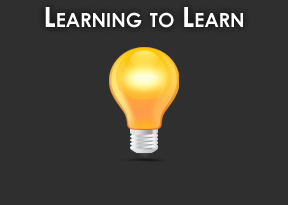
1990 Problem Solving Across the Curriculum (Conference Program Guide)
1991 Active Learning: Creating Excitement in the Classroom
1992 Learning Through Problem Solving
1993 Everyone Can Learn to Learn
1996 Foundations of Learning (1st ed.) (View current edition: e-flip book)
1997 The Classification of Learning Skills (View current edition)
2007 Profile of a Quality Learner (Faculty Guidebook)
2013 Book of Measures
2013 Learning to Learn: Becoming a Self-Grower
2015 Analytical Rubric for Measuring a Quality Collegiate Learner
2015 Learning How to Learn: Improving the Performance of Learning (IJPE)
2015 Learning to Learn Camps: Their History and Development (IJPE)
2016 Key Learner Characteristics that Produce Academic Success
- Learning Process Methodology
-
Pacifc Crest's foray into research of the learning process began with the Learning Process Model that was drafted at the first Problem Solving Across the Curriculum Conference.
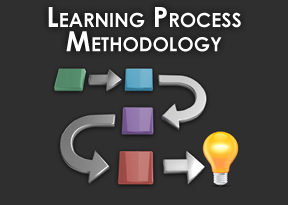
1990 Problem Solving Across the Curriculum (Conference Program Guide)
1992 Learning Through Problem Solving
1993 Using a Learning Process Model to Enhance Learning with Technology
1995 Foundations of Learning (pre-market edition) (View current edition: e-flip book)
1997 The Classification of Learning Skills (View current edition)
1998 Teaching Institute Handbook (View an excerpt of the current handbook)
1999 The Functional Neuroanatomy of Comprehension and Memory: The Importance of Prior Knowledge
2001 Curriculum Design Handbook (View an excerpt of the current handbook)
2007 Learning Process Methodology (Faculty Guidebook)
2009 Foundations of Learning (4th ed.)
2013 Learning to Learn: Becoming a Self-Grower
2014 Quantitative Reasoning and Problem Solving
2015 Elements of a Typical POGIL Classroom Activity
- Methodologies
-
Two methodologies were modeled in 1990: the Learning Process Model and the Problem Solving Methodology.
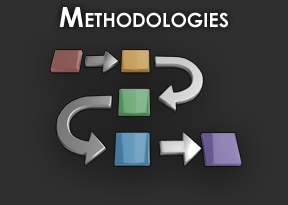
1990 Introduction to Problem Solving Using PC:SOLVE
1990 Problem Solving Across the Curriculum (Conference Program Guide)
1992 Learning Through Problem Solving (overview)
1995 Teaching Institute Handbook (View an excerpt of the current handbook)
1995 Foundations of Learning (pre-market edition) (View current edition: e-flip book)
1996 Foundations of Learning (1st ed.) (View current edition: e-flip book)
2000 Teaching Institute Handbook (View an excerpt of the current handbook)
2007 Assessment Methodology (Faculty Guidebook)
2007 Designing Process Oriented Guided Inquiry Learning Activities (Faculty Guidebook)
2007 Elevating Knowledge from Level 1 to Level 3 (Faculty Guidebook)
2007 Facilitation Methodology (Faculty Guidebook)
2007 Faculty Guidebook: A Comprehensive Tool for Improving Faculty Performance (4th ed.) 2007 Foundation of Mathematics (3rd ed.)
2007 Learning Processes through Methodologies (Faculty Guidebook)
2007 Methodology for Course Design (Faculty Guidebook)
2007 Methodology for Creating a Quality Learning Environment (Faculty Guidebook)
2007 Methodology for Designing a Program Assessment System (Faculty Guidebook)
2007 Methodology for Program Design (Faculty Guidebook)
2007 Personal Development Methodology (Faculty Guidebook)
2007 Teamwork Methodology (Faculty Guidebook)
2012 Foundations of Algebra: Active Learning Workbook
2013 Foundations of Algebra: Active Learning Textbook
2013 Learning to Learn: Becoming a Self-Grower
2014 Quantitative Reasoning and Problem Solving
2015 Selected articles by Dr. Deming
- Problem Solving
-
The Problem Solving Methodology was published in 1990 in Introduction to Problem Solving using PC:SOLVE.
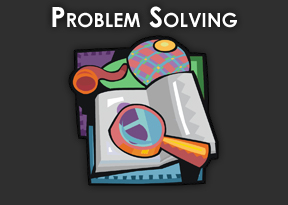
1945 How to Solve It
1980 An Analysis of the New York State Property Tax System Emphasizing the Differential Assessment
Issue for Open Space Land
1990 Introduction to Problem Solving Using PC:SOLVE
1992 Learning Through Problem Solving
1994 Education as a Process
1997 Developing Problem Solving skills: The McMaster Problem Solving Program
1999 Foundations of Problem Solving (overview)
2002 An Evaluation System that Distinguishes among Levels of Learning in Engineering and Technology
2007 Bloom’s Taxonomy: Expanding its Meaning (Faculty Guidebook)
2007 Designing Process-Oriented Guided-Inquiry Activities (Faculty Guidebook)
2007 Developing Working Expertise (Level 4 Knowledge) (Faculty Guidebook)
2007 Distinguishing between Problem Solving, Design, and Research (Faculty Guidebook)
2007 Learning Process Methodology (Faculty Guidebook)
2007 Overview of Problem Solving (Faculty Guidebook)
2007 Problem Based Learning (Faculty Guidebook)
2008 Activity Design Institute Handbook
2009 Foundations of Learning (4th ed.)
2009 Solving Real Problems with Chemistry
2011 Student Success Toolbox
2013 Learning to Learn: Becoming a Self-Grower
2014 Quantitative Reasoning and Problem Solving
- Role of Technology
-
The building of learning objects using PC:SOLVE began during 1990 for books like Calculus with Analytical Geometry, BMR publications on quantitative reasoning, chemistry, and liberal arts math, and Pacific Crest publications focused on physics, statistics, and calculus.
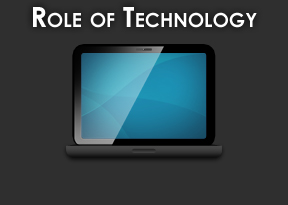
1986 Point Five: A New Way of Looking at Numbers
1992 Pacific Crest Software Products and Services
1993 Using a Learning Process Model to Enhance Learning with Technology
1998 Developing a Laboratory for Process Education
2000 Interactive Learning System Design Booklet
2001 Analytical Rubric for Interactive Learning Systems
2001 LUCID: A New Model for Computer-Assisted Learning
2002 Interactive Learning System Handbook
2012 The Teaching Institute from Pacific Crest: Taking it Online
2015 Pacific Crest Online Courses (password required)
2015 The Active Learning Classroom
1991
- Assessment vs. Evaluation
-
The practices incorporated in the first Teaching Institute included using a new type of feedback that is focused on improvement. By assessing this feedback, the shift from judgment began.
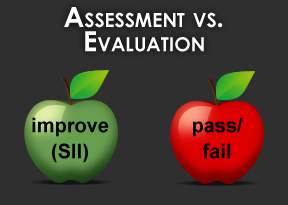
1988 Classroom Assessment Techniques: A Handbook for College Teachers
1991 Notes for the 1991 Teaching Institute
1993 Making a Difference: Outcomes of a Decade of Assessment in Higher Education (1st ed.)
1995 Teaching Institute Handbook (View an excerpt of the current handbook)
2001 Differentiating Assessment from Evaluation as Continuous Improvement Tools
2001 Program Assessment Handbook (View an excerpt of the current handbook)
2002 Assessment Institute Handbook (View an excerpt of the current handbook)
2002 Development of a Program Assessment System at the SUNY-ESF Ranger School: The process, Early Results, and Anticipated Benefits
2007 Assessing Assessments (Faculty Guidebook)
2007 Assessing Program Assessment Systems (Faculty Guidebook)
2007 Assessment Methodology (Faculty Guidebook)
2007 Constructing a Table of Measures (Faculty Guidebook)
2007 Distinctions between Assessment and Evaluation (Faculty Guidebook)
2007 Identifying Performance Measures for a Program (Faculty Guidebook)
2007 Methodology for Course Design (Faculty Guidebook)
2007 Methodology for Designing a Program Assessment System (Faculty Guidebook)
2007 Methodology for Program Design (Faculty Guidebook)
2007 Mindset for Assessment (Faculty Guidebook)
2007 Moving towards an Assessment Culture (Faculty Guidebook)
2007 Overview of Assessment (Faculty Guidebook)
2007 Performance Levels for Assessors (Faculty Guidebook)
2007 SII Method for Assessment Reporting (Faculty Guidebook)
2007 Turning Evaluation into Assessment (Faculty Guidebook)
2007 Writing a Self-Study Report (Faculty Guidebook)
2007 Writing an Annual Assessment Report (Faculty Guidebook)
2007 Writing Performance Criteria for a Program (Faculty Guidebook)
2009 Keys to Improving Academic Assessment (IJPE)
2013 Learning to Learn: Becoming a Self-Grower
2015 Identifying At-Risk Factors that Affect College Student Success (IJPE)
- Learning Communities
-
Each of the early Teaching Institutes used cooperative learning as a consistent practice which helped to create professional learning communities. As an example, the first cohort collaborated on the book Learning through Problem Solving.
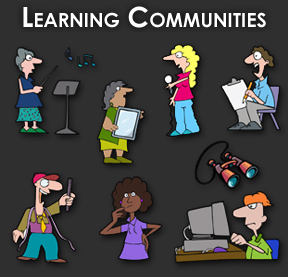
1990 Learning Communities: Creating Connections Among Students, Faculty, and Disciplines
1994 Cooperative Learning
1995 A Learning Communities Program Proposal
1996 A Handbook on Cooperative Learning
1996 Taking the Helm: Targeting Student Learning
1997 The Learning Assessment Journal as a Tool for Structured Reflection in Process Education
1998 Team Role Markers
2007 Cooperative Learning (Faculty Guidebook)
2007 Designing Teams and Assigning Roles (Faculty Guidebook)
2007 Introduction to Learning Communities (Faculty Guidebook)
2007 Team Reflection (Faculty Guidebook)
2007 Teamwork Methodology (Faculty Guidebook)
2009 Foundations of Learning (4th ed.)
2009 Learning Communities as a Strategy for Success (IJPE)
2010 Student Success Toolbox
2013 Learning to Learn: Becoming a Self-Grower
2015 Structure and Organization of Learning to Learn Camps
- Professional Development
-
Pacific Crest used a core community of faculty during its first Teaching Institute to start its exploration of and research into designing and facilitating transformational professional development. The Teaching Institute was, from its inception, a practical learning model for faculty.
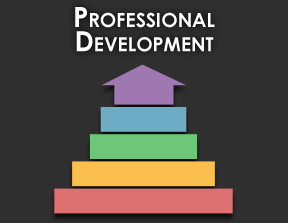
1990 Problem Solving Across the Curriculum (Conference Program Guide)
1991 Notes for the 1991 Teaching Institute
1991 NYS teacher Workshop Series
1992 Pacific Crest Software Products and Services
1993 Teach for Learning — A Handbook for Process Education
1995 Teaching Institute Handbook (View an excerpt of the current handbook)
1998 Teaching Institute Handbook (View an excerpt of the current handbook)
2000 Process Education Teaching Institute Handbook (View an excerpt of the current handbook)
2001 Curriculum Design Handbook (View an excerpt of the current handbook)
2007 Faculty Development Flyer
2007 Methodology for Course Design (Faculty Guidebook)
2007 Methodology for Program Design (Faculty Guidebook)
2007 Profile of a Quality Faculty Member (Faculty Guidebook)
2007 Faculty Guidebook: A Comprehensive Tool for Improving Faculty Performance (4th ed.)
2008 Program Design for Pacific Crest Institutes
2008 Teaching Institute Course Design
2015 Faculty Development Catalog
2015 Institute Assessment Form
1992
- Classification of Learning Skills
-
The 1992 Valparaiso Teaching Institute was the first collaborative effort to produce a collective look at learning skills and how to organize them. They were first published in Learning through Problem Solving.
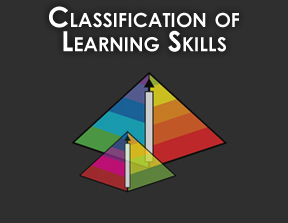
1991 Notes for the 1991 Teaching Institute
1993 Teach for Learning: A Handbook for Process Education
1996 Foundations of Learning (1st ed.) (View current edition: e-flip book)
1997 A Classification of Learning Skills for Educational Enrichment and Assessment (View current edition)
1999 Foundations of Learning (2nd ed.) (View current edition: e-flip book)
2000 Foundations of Learning (3rd ed.) (View current edition: e-flip book)
2001 What Work Requires of Schools: A SCANS Report for America 2000
2004 Hierarchy of Cognitive Domain Learning Skills to Guide Activity Design, Classroom Facilitation,
and Classroom Assessment
2007 Affective Domain (Faculty Guidebook)
2007 Classification of Learning Skills (Faculty Guidebook)
2007 Cognitive Domain (Faculty Guidebook)
2007 Social Domain (Faculty Guidebook)
2009 Foundations of Learning (4th ed.)
2011 Classification of Life Enrichment Skills (IJPE)
2013 Learning to Learn: Becoming a Self-Grower
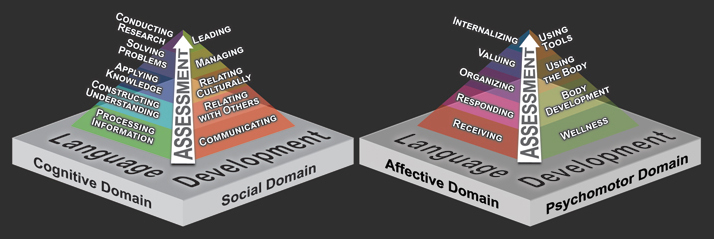
- Foundations of Learning Course
-
The first formal book used for a foundations course was published in 1992: Learning through Problem Solving.
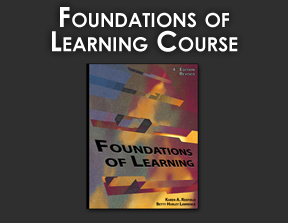
1990 Problem Solving Across the Curriculum (Conference Program Guide)
1992 Learning Through Problem Solving
1994 A Foundations Course for College Freshmen
1996 Foundations of Learning (1st ed.) (View current edition: e-flip book)
1995 A Learning Communities Program Proposal
1999 Foundations of Learning (2nd ed.) (View current edition: e-flip book)
2000 Foundations of Learning (3rd ed.) (View current edition: e-flip book)
2001 Gateway to Business (3rd ed.)
2003 Gateway to Business: An Innovative Approach to Integrating Writing into the First-Year
Business Curriculum
2003 Illinois State University Business School Course Design Business 100
2004 Enterprise
2007 Classification of Learning Skills (Faculty Guidebook)
2007 Designing a Foundations Course (Faculty Guidebook)
2008 Course Design for Foundations of Learning (4th ed.)
2009 Foundations of Learning (4th ed.)
2012 Enhancing a First-Year Success Course Through Process Education (IJPE)
2013 Learning to Learn: Becoming a Self-Grower
2016 Key Learner Characteristics that Produce Academic Success
- Self-Assessment
-
A critical component of the first learning to learn course, Learning through Problem Solving, was the development of self-assessment ability in the learner.
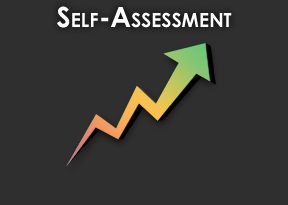
1991 Notes for the 1991 Teaching Institute
1994 Education as a Process
1995 Learning Assessment Journal
1995 Process—The Missing Element
1996 Taking the Helm: Targeting Student Learning
1997 A Classification of Learning Skills for Educational Enrichment and Assessment (View current edition)
2000 Learning Assessment Journal
2005 Understanding by Design (2nd ed.)
2007 Assessing Assessments (Faculty Guidebook)
2007 Classification of Learning Skills (Faculty Guidebook)
2007 Moving towards an Assessment Culture (Faculty Guidebook)
2007 Performance Levels for Learners and Self-Growers (Faculty Guidebook)
2007 Practical Implementation of Self-Assessment Journals (Faculty Guidebook)
2007 SII Method for Assessment Reporting (Faculty Guidebook)
2007 Turning Evaluation into Assessment (Faculty Guidebook)
2009 Foundations of Learning (4th ed.)
2011 A Comparative Analysis of Reflection and Self-Assessment (IJPE)
2011 Student Success Toolbox
2013 Book of Measures
2013 Learning to Learn: Becoming a Self-Grower
2015 Quantitative Reasoning and Problem Solving
2015 Identifying At-Risk Factors that Affect College Student Success (IJPE)
2015 What is Self-Growth? (IJPE)
- Self-Growth / Growth Mindset
-
This was another key component of the first learning to learn course, Learning through Problem Solving: the idea of helping student learn how to learn and building their ability to conduct that improvement themselves (the definition of self-growth).
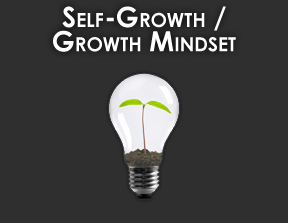
1991 Notes for the 1991 Teaching Institute
1992 Learning Through Problem Solving
1993 Teach for Learning — A Handbook for Process Education
1995 Primer for Process Education
1996 Foundations of Learning (1st ed.) (View current edition: e-flip book)
1997 Process Education: A New Educational Mission
2006 Mindset: The New Psychology of Success: How We Can Learn to Fulfill Our Success
2007 Becoming a Self-Grower (Faculty Guidebook)
2007 Performance Levels for Learners and Self-Growers (Faculty Guidebook)
2007 Self-Growth Plans for Faculty Members (Faculty Guidebook)
2009 Foundations of Learning (4th ed.)
2011 A Comparative Analysis of Reflection and Self-Assessment (IJPE)
2011 Process Education Definition: A Learning Object
2013 Learning to Learn: Becoming a Self-Grower
2015 Analytical Rubric for Measuring a Quality Collegiate Learner
2015 Learning to Learn Camps: Their History and Development (IJPE)
2015 What is Self-Growth? (IJPE)
1993
- Accelerator Model
-
The idea that growth begins with pushing students outside their comfort zone was first published in Teach for Learning — A Handbook for Process Education and referred to as "time-pressured learning".
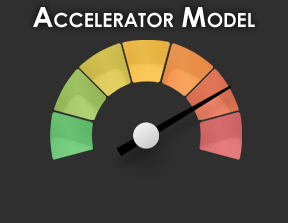
1992 Learning Through Problem Solving
1993 Teach for Learning — A Handbook for Process Education
1995 Teaching Institute Handbook (View an excerpt of the current handbook)
1998 Teaching Institute Handbook (View an excerpt of the current handbook)
2000 How People Learn: Brain, Mind, Experience, and School
2007 Accelerator Model (Faculty Guidebook)
2007 Methodology for Creating a Quality Learning Environment (Faculty Guidebook)
2007 Setting High Expectations (Faculty Guidebook)
2013 Learning to Learn: Becoming a Self-Grower
- Process Education Philosophy
-
The first time Process Education was formulated and published as "Process Education" was in Teach for Learning — A Handbook for Process Education.
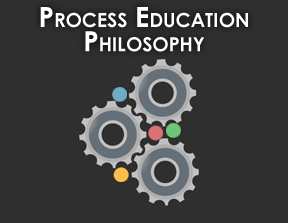
1990 Problem Solving Across the Curriculum (Conference Program Guide)
1991 Notes for the 1991 Teaching Institute
1993 Everyone Can Learn to Learn
1993 Expanding Mathematics Education into a Process
1993 Teach for Learning — A Handbook for Process Education
1994 Education as a Process
1995 Primer for Process Education
1995 Concept Map of Process Education
1995 Process — the Missing Element (2004 reprint)
1995 Transforming Engineering Education from a Product to a Process
1996 A Focus on Process Improves Problem-Based Learning in Large Classes
1996 A Process Education Approach to Teaching Computer Science
1996 Taking the Helm: Targeting Student Learning
1996 Taxonomy of Process Education
1997 A Classification of Learning Skills for Educational Enrichment and Assessment (View current edition)
1997 Process Education: A New Educational Mission
1998 Improving the Teaching/Learning Process in General Chemistry
1999 A Process Approach for Improving Students’ Performance in Learning Mathematics
1999 Process Education Overview
1999 Process Map for Mentoring
2001 Process Education and Continual Process Improvement at WMU
2007 Becoming a Self-Grower (Faculty Guidebook)
2007 Classification of Learning Skills (Faculty Guidebook)
2007 Faculty Guidebook: A Comprehensive Tool for Improving Faculty Performance (4th ed.)
2007 Framework for Implementing Process Education (Faculty Guidebook)
2007 Introduction to Process Education (Faculty Guidebook)
2007 Knowledge Table for Process Education (Faculty Guidebook)
2007 Learning Processes through the Use of Methodologies (Faculty Guidebook)
2007 Moving towards an Assessment Culture (Faculty Guidebook)
2007 Process Education as a Motivation and Self-Regulation System (Faculty Guidebook)
2007 Role of Process Education in Fulfilling the Changing Roles in Higher Education (Faculty Guidebook)
2009 Process Education and Constructive Alignment: The Challenge of Student Assessment Online (IJPE)
2009 Process Education - Past, Present, and Future (IJPE)
2010 PE Best Practices for Teaching Open-Ended Problem Solving in a Project Context (IJPE)
2011 The Transformation of Education: 14 Aspects (IJPE)
2012 Enhancing a First-Year Success Course through Process Education (IJPE)
2013 What is Special about Process Education? (IJPE)
2014 Online Professional Development for Process Educators (IJPE)
2015 Learning How to Learn: Improving the Performance of Learning (IJPE)
2015 Learning to Learn Camps: Their History and Development (IJPE)
2015 What is Self-Growth? (IJPE)
2016 Process Education Conference
2016 International Journal of Process Education (archived issues)
1994
- Creating a Quality Learning Environment
-
The question of what components/dynamis make up a quality learning environment started with dialog between Dan Apple and Rick Moog, where they worked to identify characteristics in one of Rick's classes that produced quality learning, based upon practices learned at the Teaching Institutes.
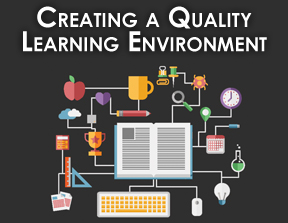
1991 Notes for the 1991 Teaching Institute
1993 Teach for Learning — A Handbook for Process Education
1995 Teaching Institute Handbook (View an excerpt of the current handbook)
1998 Teaching Institute Handbook (View an excerpt of the current handbook)
2000 Process Education Teaching Institute Handbook (View an excerpt of the current handbook)
2007 Accelerator Model (Faculty Guidebook)
2007 Creating Meaningful Assessment and Documentation Systems (Faculty Guidebook)
2007 Establishing Initial Respect without Prejudging (Faculty Guidebook)
2007 Getting Student Buy-In (Faculty Guidebook)
2007 Letting Students Fail so They Can Succeed (Faculty Guidebook)
2007 Methodology for Creating a Quality Learning Environment (Faculty Guidebook)
2007 Obtaining Shared Commitment (Faculty Guidebook)
2007 Overview of a Quality Learning Environment (Faculty Guidebook)
2007 Setting High Expectations (Faculty Guidebook)
2007 Writing Performance Criteria for a Course (Faculty Guidebook)
2007 Writing Performance Criteria for Individuals and Teams (Faculty Guidebook)
2011 The Transformation of Education: 14 Aspects (IJPE)
2009 Conditions for Challenging Learner Performance (IJPE)
1995
- Activity Design Process
-
The first formal methodology for activity design was published as part of the Teaching Institute Handbook in 1995 and was instrumental in the first Curriculum Design Institute (also in 1995) that led faculty participants to develop many of the activity books published in the late 1990s.
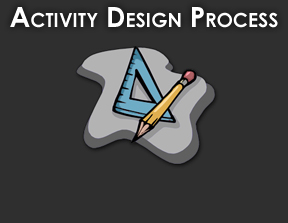
1990 Problem Solving Across the Curriculum (Conference Program Guide)
1991 Notes for the 1991 Teaching Institute
1993 Using a Learning Process Model to Enhance Learning with Technology
1995 Teaching Institute Handbook (View an excerpt of the current handbook)
1998 Teaching Institute Handbook (View an excerpt of the current handbook)
2000 Advanced Teaching Institute Journal - Madison College
2002 An Evaluation System that Distinguishes among Levels of Learning in Engineering and Technology
2007 Activity Design Institute Handbook
2007 Foundation of Mathematics (3rd ed.)
2007 Assessing Learning Activities (Faculty Guidebook)
2007 Bloom’s Taxonomy: Expanding its Meaning (Faculty Guidebook)
2007 Designing Process-Oriented Guided-Inquiry Activities (Faculty Guidebook)
2007 Developing Working Expertise (Level 4 Knowledge) (Faculty Guidebook)
2007 Elevating Knowledge from Level 1 to Level 3 (Faculty Guidebook)
2007 Forms of Knowledge and Knowledge Tables (Faculty Guidebook)
2007 Methodology for Creating Methodologies (Faculty Guidebook)
2007 Overview of Effective Learning Tools (Faculty Guidebook)
2007 Overview of Learning Activities (Faculty Guidebook)
2007 Overview of Problem Solving (Faculty Guidebook)
2007 Self-Validation of One’s Learning (Faculty Guidebook)
2007 Writing Critical Thinking Questions (Faculty Guidebook)
2009 Foundations of Learning (4th ed.)
2013 Learning to Learn: Becoming a Self-Grower
2014 Quantitative Reasoning and Problem Solving
2015 Foundations of Biochemistry (4th ed.)
2015 Foundations of Organic Chemistry
- Learning to Learn Camps
-
The first official Learning to Learn Camp was facilitated at Keystone College outside of Scranton, PA, in 1995.
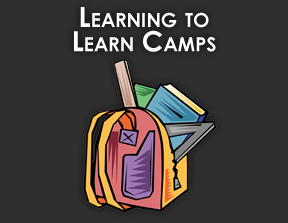
1992 A Fresh Look at Math and Graphing Skills
1992 Learning Through Problem Solving
1995 Foundations of Learning (premarket ed.) (View current edition: e-flip book)
1995 Learning Assessment Journal
1995 Learning to Learn Camp Journal
1996 Foundations of Learning Foundations of Learning (View current edition: e-flip book)
1999 Foundations of Learning (2nd ed.) (View current edition: e-flip book)
1996 Learning Assessment Journal (2nd ed.)
2000 Foundations of Learning (3rd ed.) (View current edition: e-flip book)
2002 The Life Vision Portfolio (View current edition)
2007 Learning to Learn Camps (Faculty Guidebook)
2008 Math and Graphing Skills (4th ed.)
2009 Foundations of Learning (4th ed.)
2011 Student Success Toolbox
2013 Learning to Learn Camp Facilitator’s Guide: Training the Trainer
2013 Learning to Learn: Becoming a Self-Grower
2015 Emerging Scholars Program
2015 Learning How to Learn: Improving the Performance of Learning (IJPE)
2015 Learning to Learn Camp
2015 Learning to Learn Camps: Their History and Development (IJPE)
2015 What is Self-Growth? (IJPE)
2016 Key Learner Characteristics that Produce Academic Success
1997
- Performance Criteria
-
The description of performance criteria was first formally articulated in the 1997 Teaching Institute Handbook. These criteria were used to create the first performance measure: Performance Measure for Listening.
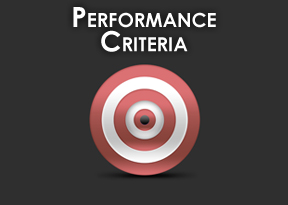
1995 Teaching Institute Handbook (View an excerpt of the current handbook)
1997 Kirkwood Teaching Institute Journal
1998 Process Education Teaching Institute Handbook (View an excerpt of the current handbook)
2001 Program Assessment Institute Handbook (View an excerpt of the current handbook)
2007 Writing Performance Criteria for a Course (Faculty Guidebook)
2007 Writing Performance Criteria for a Program (Faculty Guidebook)
2007 Writing Performance Criteria for Individuals and Teams (Faculty Guidebook)
2009 Performance, Criteria, and Measurement (a learning object)
2015 Examples of Performance Criteria
- Performance Measures
-
The first performance measure was developed at the Teaching Institute held at Kirkwood Community College in 1997 to measure the performance of listening.
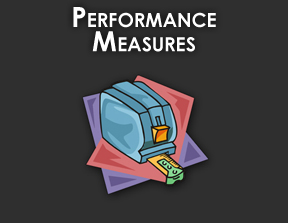
1997 A Classification of Learning Skills for Educational Enrichment and Assessment (View current edition)
1997 Teaching Institute Journal
1998 Process Education Teaching Institute Handbook (View an excerpt of the current handbook)
2002 Institute for Designing and Implementing Performance Measures Handbook (View an excerpt of the current handbook)
2007 Faculty Guidebook: A Comprehensive Tool for Improving Faculty Performance (4th ed.)
2007 Constructing a Table of Measures (Faculty Guidebook)
2007 Fundamentals of Rubrics (Faculty Guidebook)
2007 Identifying Performance Measures for a Program (Faculty Guidebook)
2007 Knowledge Table for Process Education (Faculty Guidebook)
2007 Measuring Quality in Design (Faculty Guidebook)
2007 Measuring Writing Performance in a Discipline (Faculty Guidebook)
2007 Overview of Measurement (Faculty Guidebook)
2007 Performance Levels for Assessors (Faculty Guidebook)
2007 Performance Levels for Learners and Self-Growers (Faculty Guidebook)
2007 Theory of Performance (Faculty Guidebook)
2012 Measuring Writing as a Representation of Disciplinary Knowledge (IJPE)
2013 Book of Measures
2015 Learning How to Learn: Improving the Performance of Learning (IJPE)
- Reflection / Meta-cognition
-
The first paper on reflective practices was published in 1997. It integrated the experiences over the previous few years with journal writing and the use of tools to support the active learning process.
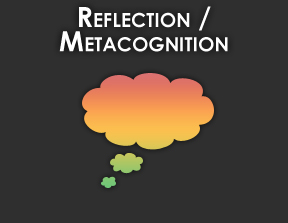
1992 Learning Through Problem Solving
1993 Teach for Learning — A Handbook for Process Education
1994 Introduction to Journal Keeping
1995 Learning Assessment Journal
1996 Learning Assessment Journal (2nd ed.)
1997 Learning Assessment Journal (3rd ed.)
1997 The Learning Assessment Journal as a Tool for Structured Reflection in Process Education
2000 Learning Assessment Journal (4th ed.)
2001 Advanced Teaching Institute Journal: Cedar Rapids
2001 Self-Assessment Learning Journal
2007 Faculty Guidebook: A Comprehensive Tool for Improving Faculty Performance (4th ed.)
2007 Persistence Log (Faculty Guidebook)
2007 Practical Implementation of Self-Assessment Journals (Faculty Guidebook)
2007 Team Reflection (Faculty Guidebook)
2007 Using Reading and Lecture Notes Logs to Improve Learning (Faculty Guidebook)
2008 Information Technology Self-Assessment Learning Journal (4th ed.)
2009 Student Success Toolbox (pre-market edition) (View current edition)
2010 Improving Quality of Reflecting on Performance (IJPE)
2011 A Comparative Analysis of Reflection and Self-Assessment (IJPE)
2013 Learning to Learn: Becoming a Self-Grower
2013 Reflection and Metacognition in Engineering Practice
2013 Student Success Toolbox (1st ed.)
2014 Quantitative Reasoning and Problem Solving
1998
- Course Design Process
-
The first formal Course Design Methodology was published in the 1998 Teaching Institute Handbook. Previous presentations (in various handbooks) contained some pieces of curriculum development.
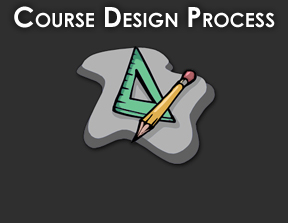
1992 Pacific Crest Software Products and Services
1993 Teach for Learning — A Handbook for Process Education
1993 Using a Learning Process Model to Enhance Learning with Technology
1995 Teaching Institute Handbook (View an excerpt of the current handbook)
2001 Curriculum Design Handbook (View an excerpt of the current handbook)
2002 Improving the Professional Skills of Engineering Graduate Students through
Capstone Project Mentoring in IEWorks
2003 Creating and Using a Performance Measure for the Engineering Design Process
2003 How Universal are Capstone Design Course Outcomes?
2005 Deriving Design Course Learning Outcomes from a Professional Profile
2006 Assessment Framework for Capstone Design Courses
2006 Course Design Handbook (View an excerpt of the current handbook)
2007 Faculty Guidebook: A Comprehensive Tool for Improving Faculty Performance (4th ed.)
2007 Assessing Learning Activities (Faculty Guidebook)
2007 Classification of Learning Skills (Faculty Guidebook)
2007 Course Grading Systems (Faculty Guidebook)
2007 Creating a Capstone Course (Faculty Guidebook)
2007 Designing a Foundations Course (Faculty Guidebook)
2007 Designing Process-Oriented Guided-Inquiry Activities (Faculty Guidebook)
2007 Forms of Knowledge and Knowledge Tables (Faculty Guidebook)
2007 Fundamentals of Rubrics (Faculty Guidebook)
2007 Learning Outcomes (Faculty Guidebook)
2007 Long-Term Behaviors (Faculty Guidebook)
2007 Methodology for Course Design (Faculty Guidebook)
2007 Methodology for Creating Methodologies (Faculty Guidebook)
2007 Overview of Instructional Design (Faculty Guidebook)
2007 Overview of Learning Activities (Faculty Guidebook)
2007 Writing Critical Thinking Questions (Faculty Guidebook)
2007 Writing Performance Criteria for a Course (Faculty Guidebook)
2009 Course Design for Foundations of Learning (4th ed.)
2009 Methodology for Selection, Sequencing, and Deployment of Activities in a Capstone Design Course
using the TIDEE Web-Based Assessment System (DETC2009/DED-87478)
2011 Assessing Professional Skill Development in Capstone Design Courses
2011 Development of Knowledge Tables and Learning Outcomes for the Introductory Course
in Transportation Engineering
2012 Integrated Design Engineering Assessment and Learning System: Piloting Teamwork
and Professional Skills Development Instructional Materials
- Facilitation
-
The first facilitation methodology was published in the 1998 Teaching Institute Handbook. The goal was to highlight the key steps of facilitating an activity.
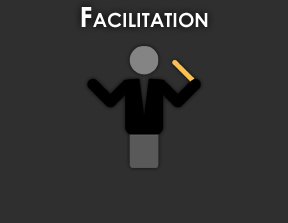
1991 Notes for the 1991 Teaching Institute
1994 Education as a Process
1995 Concept Map of Process Education
1995 Primer for Process Education
1995 Teaching Institute Handbook (View an excerpt of the current handbook)
1996 An Instructor’s Guide to Process Workshops
1996 Taking the Helm: Targeting Student Learning
1998 Improving the Teaching/Learning Process in General Chemistry
1998 Teaching Institute Handbook (View an excerpt of the current handbook)
2000 Process Education Teaching Institute Handbook (View an excerpt of the current handbook)
2001 Facilitator's Institute Handbook (View an excerpt of the current handbook)
2003 Math Basic Facilitator Guide
2006 Instructor's Guide to Process-Oriented Guided-Inquiry Learning
2007 Annotated Bibliography: Facilitation (Faculty Guidebook)
2007 Constructive Intervention (Faculty Guidebook)
2007 Constructive Intervention Techniques (Faculty Guidebook)
2007 Creating a Facilitation Plan (Faculty Guidebook)
2007 Facilitation Methodology (Faculty Guidebook)
2007 Facilitation Tools (Faculty Guidebook)
2007 Identifying Learner Needs (Faculty Guidebook)
2007 Overview of Facilitation (Faculty Guidebook)
2007 Profile of a Quality Facilitator (Faculty Guidebook)
2011 The Transformation of Education: 14 Aspects (IJPE)
2013 Learning to Learn Camp Facilitator’s Guide: Training the Trainer
2013 Learning to Learn: Becoming a Self-Grower
2000
- Mentoring
-
The first formalized mentoring methodology and profile of a quality mentor were published in the 2000 Teaching Institute Handbook.
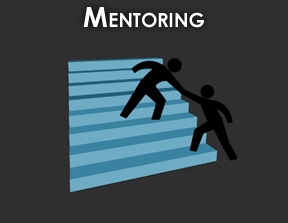
1990 Introduction to Problem Solving using PC:SOLVE
1992 Learning Through Problem Solving
1995 A Learning Communities Program Proposal
1995 Concept Map of Process Education
1999 Process Map for Mentoring
2000 Teaching Institute Handbook (View an excerpt of the current handbook)
2001 Student Success Institute Handbook (View an excerpt of the current handbook)
2002 University of Idaho, Enriched Learning Environment Project:
NSF Requested Project Evaluation Report
2003 Mentoring Handbook (View an excerpt of the current handbook)
2004 UI's Beyerlein Directs Guidebook Project Aimed at Improving College Teaching
2007 Accelerator Model (Faculty Guidebook)
2007 Annotated Bibliography: Mentoring (Faculty Guidebook)
2007 Annual Professional Growth Plans (Faculty Guidebook)
2007 Assessing Assessments (Faculty Guidebook)
2007 Becoming a Self-Grower (Faculty Guidebook)
2007 Constructive Intervention Techniques (Faculty Guidebook)
2007 Constructive Intervention (Faculty Guidebook)
2007 Life Coaching: The Heart of Advising (Faculty Guidebook)
2007 Overview of Mentoring (Faculty Guidebook)
2007 Peer Coaching (Faculty Guidebook)
2007 Personal Development Methodology (Faculty Guidebook)
2007 Profile of a Quality Faculty Member (Faculty Guidebook)
2007 Self-Growth Plans for Faculty Members (Faculty Guidebook)
2007 Setting High Expectations (Faculty Guidebook)
2009 Mentoring Institute Handbook (View an excerpt of the current handbook)
2011 Student Success Toolbox
2013 Learning to Learn: Becoming a Self-Grower
2014 Mentoring is Critical for At-Risk Students
2015 Identifying At-Risk Factors that Affect College Student Success (IJPE)
2015 Learning to Learn Camps
2007
- Culture of Success
-
The Compass of Higher Education and models for change in Higher Education were published in the 4th edition Faculty Guidebook in 2007, starting Pacific Crest's research and scholarship in the culture of success.
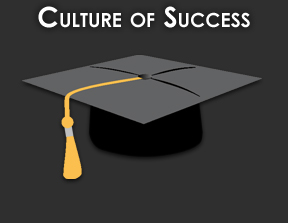
2006 Reflections on Student Success
2007 Faculty Guidebook: A Comprehensive Tool for Improving Faculty Performance (4th ed.)
2007 Changing Expectations for Higher Education (Faculty Guidebook)
2007 Efforts to Transform Higher Education (Faculty Guidebook)
2007 Introduction to Expectations and Change Movements in Higher Education (Faculty Guidebook)
2007 Learning Colleges (Faculty Guidebook)
2007 Role of Process Education in Fulfilling the Changing Mission of Higher Education (Faculty Guidebook)
2008 Work in Progress: Process Education: Improving Performance across Domains
2009 Process Education - Past, Present, and Future (IJPE)
2011 The Transformation of Education: 14 Aspects (IJPE)
2013 Changing Institutional Culture to Promote Assessment in Higher Learning
2013 What is Special about Process Education? (IJPE)
2015 Identifying At-Risk Factors that Affect College Student Success (IJPE)
2016 Key Learner Characteristics that Produce Academic Success (Pending peer review)
- Performance Model
-
The theory behind performance — what it entails, what contributes to it, and what enhances it — was first published in the Faculty Guidebook in 2007.
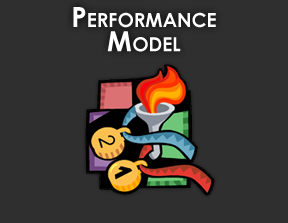
2002 Life Vision Portfolio
2007 Bloom's Taxonomy: Expanding its Meaning (Faculty Guidebook)
2007 Classification of Learning Skills (Faculty Guidebook)
2007 Elevating Knowledge from Level 1 to level 3 (Faculty Guidebook)
2007 Forms of Knowledge and Knowledge Tables (Faculty Guidebook)
2007 Theory of Performance (Faculty Guidebook)
2009 Foundations of Learning (4th ed.)
2009 Performance, Criteria and Measurement: A Snapshot and Example (learning object)
2011 Student Success Toolbox
2012 The Performance Model (learning object)
2013 Learning to Learn: Becoming a Self-Grower
2015 Identifying At-Risk Factors that Affect College Student Success (IJPE)
2015 Learning How to Learn: Improving the Performance of Learning (IJPE)
2015 What is Process Education?
2016 Key Learner Characteristics that Produce Academic Success (Pending peer review)
- Academy of Process Educators
-
The Academy of Process Educators was founded in 2007.
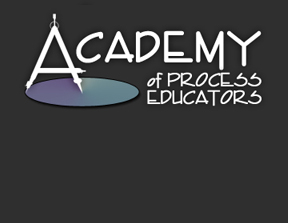
1992 Problem Solving Across the Curriculum conference program
2000 Faculty Development Consortium Project Summary at Stony Brook University
2000 Journal of the Faculty Development Consortium Exploratory Meeting at Stony Brook University
2001 Proceedings of the Faculty Development Consortium Meeting Wanakena Ranger School
2002 Nationwide Consortium for Advancement of Learning and Teaching in SMET Disciplines
2004 Association of Research-Based Practitioners in Process Education (ARBPPE)
2007 Faculty Guidebook: A Comprehensive Tool for Improving Faculty Performance (4th ed.)
2008 Strategic Plan 2007-2012
2009 International Journal of Process Education (archive)
2009 International Journal of Process Education, Volume 1
2009 Process Education Conference 2009 (proceedings)
2010 International Journal of Process Education, Volume 2
2010 Process Education Conference 2010 (proceedings)
2010 Strategic Plan 2010-2012
2010 Why Join?
2011 International Journal of Process Education, Volume 3
2011 Process Education Conference 2011 (proceedings)
2012 Bylaws
2012 International Journal of Process Education, Volume 4
2012 Measuring Writing as a Representation of Disciplinary Knowledge
2014 Online Professional Development for Process Educators
2012 Process Education Conference 2012 (proceedings)
2012 Strategic Plan 2012-2015
2013 International Journal of Process Education, Volume 5
2013 Process Education Conference 2013 (proceedings)
2014 International Journal of Process Education, Volume 6
2014 Process Education Conference 2014 (proceedings)
2015 Board of Directors
2015 International Journal of Process Education, Volume 7
2015 Process Education Conference 2015 (proceedings)
2016 Process Education Conference 2016
- Research-Based Best Practices
-
The 4th edition of the Faculty Guidebook (published in 2007) included content informed by research-based practice. The focus on research-based PE practices continued with the International Journal of Process Education (first published in 2009). This focus continues as practitioners share and learn from one another whether through the Journal, at the annual Process Education conference, or peer relationships and professional mentoring.
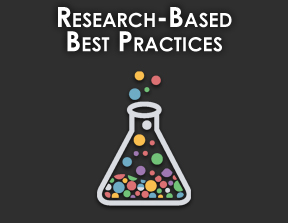
Cooperative Learning
1994 Cooperative Learning
1996 A Handbook on Cooperative Learning (view 1999 version)
1998 Team Role Markers
2007 Cooperative Learning (Faculty Guidebook)
2007 Designing Teams and Assigning Roles (Faculty Guidebook)
2007 Team Reflection (Faculty Guidebook)
2011 EXAMPLE: Student Success Toolbox
2015 EXAMPLE: Foundations of Biochemistry (4th ed.)
Active Learning
2007 Constructive Intervention Techniques (Faculty Guidebook)
2007 Constructive Intervention Techniques (Faculty Guidebook)
2007 Facilitation Methodology (Faculty Guidebook)
2007 Facilitation Overview (Faculty Guidebook)
2007 Learning Process Methodology (Faculty Guidebook)
2007 Profile of a Quality Facilitator (Faculty Guidebook)
2009 EXAMPLE: Foundations of Learning (4th ed.)
2011 The Transformation of Education: 14 Aspects (IJPE)
2013 EXAMPLE: Learning to Learn: Becoming a Self-Grower
Relevance of Learning Activities
2007 Problem-Based Learning (Faculty Guidebook)
2007 Process-Oriented Guided-Inquiry learning (Faculty Guidebook)
2008 Activity Design Institute Handbook
2009 EXAMPLE: Foundations of Learning (4th ed.)
2009 EXAMPLE: Solving Real Problems with Chemistry
2013 EXAMPLE: Learning to Learn: Becoming a Self-Grower
2015 EXAMPLE: Foundations of Organic Chemistry
Elevating Learning to Problem Solving
1992 Learning Through Problem Solving
1997 EXAMPLE: Foundations of Problem Solving
2007 Developing Working Expertise (Level 4 Knowledge) (Faculty Guidebook)
2007 Setting High Expectations (Faculty Guidebook)
2007 Writing Critical Thinking Questions (Faculty Guidebook)
2011 The Transformation of Education: 14 Aspects (IJPE)
Validation of Learning
2005 EXAMPLE: Foundation of Mathematics (3rd ed.)
2007 Self-Validation of One's Learning (Faculty Guidebook)
2009 EXAMPLE: Foundations of Learning (4th ed.)
2009 EXAMPLE: Solving Real Problems with Chemistry
2013 EXAMPLE: Foundations of Algebra: Active Learning Textbook
2014 EXAMPLE: Quantitative Reasoning and Problem Solving
Clear Expectations: Describing the Target
2007 Learning Process Methodology (Faculty Guidebook)
2007 Writing Performance Criteria for a Course (Faculty Guidebook)
2007 Writing Performance Criteria for a Program (Faculty Guidebook)
2007 Writing Performance Criteria for Individuals and Teams (Faculty Guidebook)
2009 EXAMPLE: Foundations of Learning (4th ed.)
2013 EXAMPLE: Learning to Learn: Becoming a Self-Grower
2014 EXAMPLE: Quantitative Reasoning and Problem Solving
2015 EXAMPLE: Foundations of Organic Chemistry
Concept Maps
2007 Overview of Learning Activities (Faculty Guidebook)
2011 EXAMPLE: Student Success Toolbox
2012 Concept Maps for Linking Aspects in the Transformation of Education (IJPE)
2012 Concept Maps for Linking Aspects in the Transformation of Education (learning object)
2013 EXAMPLE: Learning to Learn: Becoming a Self-Grower
2014 EXAMPLE: Quantitative Reasoning and Problem Solving